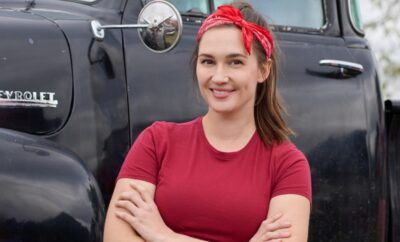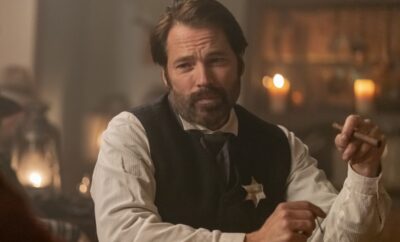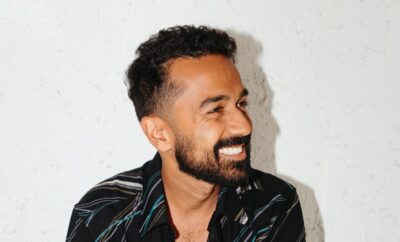Features
Underrepresentation of Women in the Media Industry
By: Marie Thong
Okay, so let’s just say it, might as well dive straight in right? Women are heavily underrepresented in the film and television industry. It’s a fact. Numerous studies have shown how underrepresented women are – most notably the study conducted by the New York Film Academy in 2013, which found that the industry is heavily dominated by men. For every five men there is only one woman. While things have changed significantly since film was first introduced, things are still in no way equal.
First, let’s look at roles behind the scenes of film and TV. In the beginning, women were hired in roles like screenwriting due to the anonymity of it and editing because the skills needed are similar to that of knitting and sewing. Nowadays women have the opportunity to work as directors, producers and writers (without remaining anonymous); however, the study conducted by the New York Film Academy statistics showed that development is moderate at best. In the top 250 films of 2012, the NYFA found that only 9% of the directors were female, showing no change since 1998. Similarly, other roles like executive producers, editors and cinematographers have either decreased or held the same percentage.
Of course, there could be a number of reasons as to why women are underrepresented in this area. For example, women aren’t as interested in this profession, but the overwhelmingly more likely scenario is that women have been oppressed. We are made to think we aren’t skilled enough or “cut out” to work in the industries we want to. We are told that we “don’t have what it takes,” told we are too emotional or told too hormonal to properly do our job. Society is still stuck in this archaic, outdated way of thinking – as though women should only work in the kitchen and be a housewife. I wish I could say that it doesn’t go to that extent anymore, but there are still some people who think that way! What makes things worse is that when women assert themselves, show initiative and strength they are seen as spoiled, difficult or annoying. It’s as if no matter what we do we are always, in one way or another, doing something wrong. I will never understand how people can believe that women are incapable of doing as good a job as men. Heaven forbid we do a better job than men. *crowd gasps dramatically* Wait, let me clutch my pearls at this shocking revelation.
Despite being in high positions on their sets, many women have recounted instances where they were treated as lesser or aren’t held in the same stature as men. Director Lexi Alexander talks about how a driver refused to take her somewhere because he was to wait for the director, which was her. (Because obviously the director has to be a man.) She was also rejected by a production company because an anonymous action star couldn’t bare the “humiliation” of being directed by a woman. There are countless stories similar to these where women are stereotyped into roles, where women have been sexually harassed but no one takes notice or where women are critiqued if they show strength or assertiveness.
Now, we’ve talked about how poorly women are treated in this industry let’s talk about some of the women who were able to rise in this industry and make a difference. A study conducted by The Centre for Study of Women in Television and Film called “It’s a Man’s (Celluloid) World” found just how much influence women can have on characters in their stories. In films that at least one female director, producer or writer, females consisted of 39% protagonists and males 35%, but in films with exclusively male directors, producers or writers only 4% of females were protagonists in comparison to 87% for males. Not only do women provide a more gender equal narrative, but also create female characters that can be appreciated for more than just their looks – in protagonist roles, females can do more than be arm candy for a male character.
Speaking of female characters, let’s look at women’s representation on-screen. Women have been in film since its inception yet it seems that many filmmakers and writers can’t quite seem to represent females to a respectable and high value. Often women play menial, unimportant characters made for the purpose of enhancing or making male characters more effective. Even today women are heavily sexualized in roles. In the study “It’s a Man’s (Celluloid) World,” they found that women are twice as likely to be hyper-sexualized on camera in comparison to men. And if that’s not bad enough, a thirteen-year-old female character can be equally as sexualized as a thirty-nine-year-old. I don’t understand how society feels this is an acceptable thing to do – sexualizing women and putting them in roles that degrade them is pretty disgusting. However, even when film or television shows produce strong female characters the strength and assertiveness that the female possesses often comes from a negative situation in life like abuse or heartbreak, often from a male character. Why must a female’s strength come from something a male has done to them? Why can’t her strength come from her own being and decisions?
These days while there are quite a few female driven films and television shows society still puts women and these productions through the ringer. They receive such heavy criticism because the female characters aren’t “sexy” or don’t play a part that serves a male character. One of the most notable examples has to be the new Ghostbusters movie, remade with an [amazing] all-female cast. Critics and viewers alike were appalled when the news first broke of this, shocked by the fact Ghostbusters were female – because only men can get rid of ghosts, am I right? Appalled by the fact that the women weren’t sexy or nice to look at. Star Wars: Rogue One also became victim to misogynistic and sexist comments. For example, “Women should be in the kitchen, not saving the Galaxy. Know your place.” Or “… Star Wars is about men, men fighting to save the universe. If women can do the same as men, what’s the point?” If you haven’t already guessed, many of these criticisms and negative comments come from men. A survey actually found that 76% of registered film critics are men meaning a lot of the time, film reviews can be unbalanced and bias. For example, in the film The Devil Wears Prada 80% of female reviewers rated the film positively, but 82% of the negative reviews came from men.
The hard truth is that women are heavily underrepresented in this industry; however, there is still light at the end of the tunnel with brilliant female directors, writers, showrunners, producers and more taking the world by storm. These women work hard to flip the world upside down, not giving a damn about misogynistic asshats as they create characters, films and shows that portray women in a comprehensive and equal way. One prime example of this is Emily Andras – the showrunner for the television series “Wynonna Earp” an incredible show with strong, powerful leading ladies. Another is Steph Ouaknine – a producer on the web series Carmilla. This web series is not only led by females, but almost their entire crew are females. “It’s A Man’s (Celluloid) World” has already found that women in roles behind the scenes enhance and balance out productions so if Carmilla isn’t a prime example of this, I don’t know what is. Furthermore, productions like “Lost Girl,” “Jessica Jones,” “Supergirl,” “Wynonna Earp,” Captain Marvel, Ghostbusters and Rogue One are showing just how the industry is changing and women are being better represented on screen. Some of the aforementioned works also further prove that women in leadership roles behind the scenes are having a positive impact on representation.
It’s awful to think that in this day and age women are still facing the same problems and receiving the same criticisms as they were a decade ago. You’d think that we would be beyond that by now, but evidently not. Thankfully, things are progressing (if only at snail pace). The straight truth is that women are underrepresented, but believe it or not each and every one of us can do something to help – we can use our voices, talk about the issue with people, on social media. Stand up to the haters and the critics who are misogynistic or sexist. We can already see change, let’s make sure it’s permanent and everlasting.





1 Comment
You must be logged in to post a comment Login